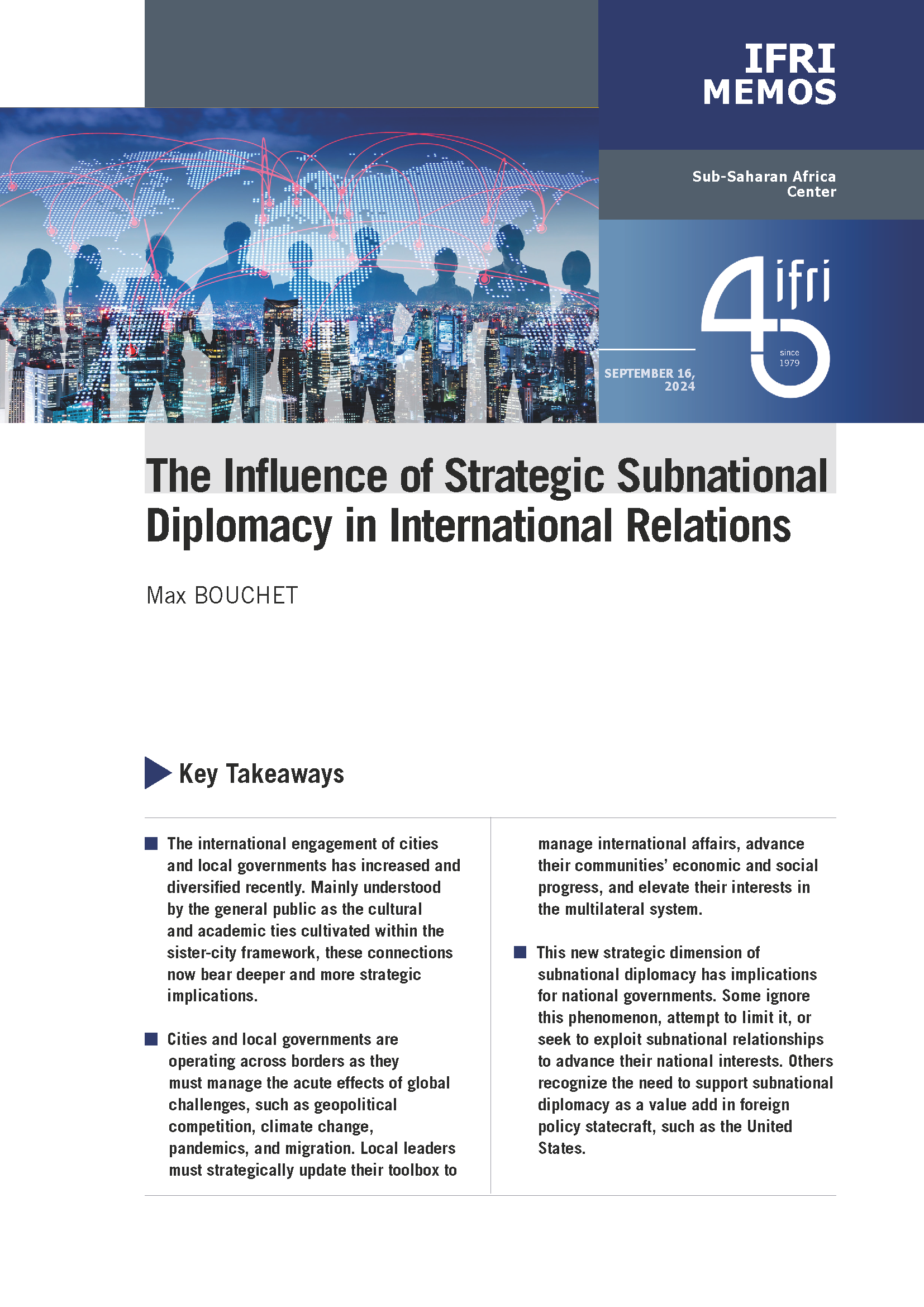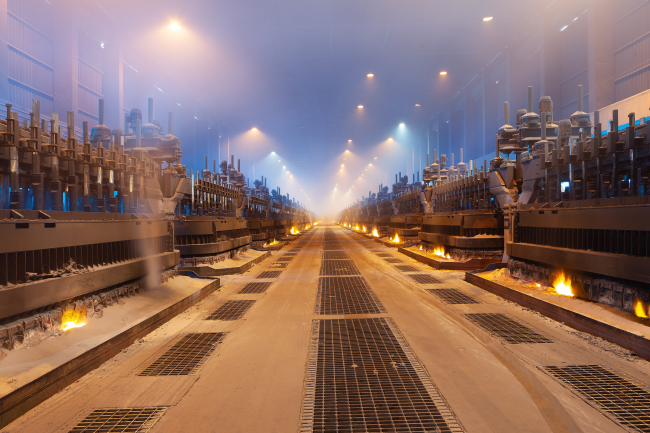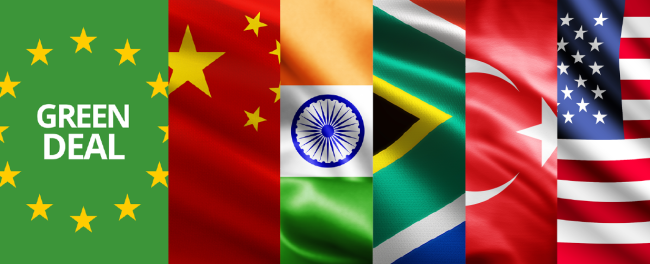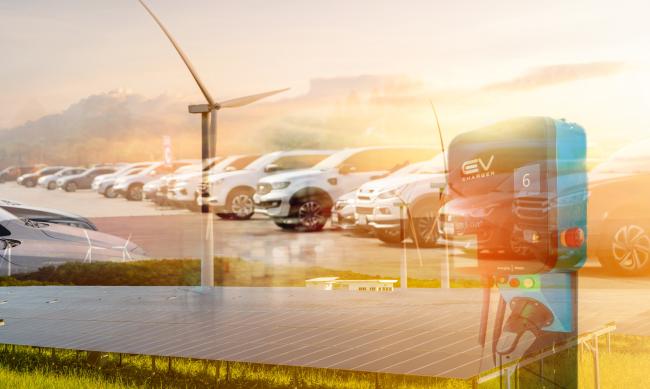Some Candid Words of the Energy Wisdom to the G8

Heads of State and Government will meet in Italy to discuss the state-of-the-world and its most pressing challenges. As every Summit, considerable attention will be devoted to energy issues and their nexus with the threat of climate change - or perhaps its eventuality. The world economy has been rocked by an unprecedented economic collapse with major impacts on every aspect of global activity. Energy markets have been shaken, faith in the market has been shaken and participants along the entire energy value chain are looking for secure reference points in the major economic indicators to help them plan for the future.
But many of the energy/climate challenges of previous years are the same. They are perhaps complicated by the current situation, but there are not likely to be any fundamentally different challenges when the global economy begins to recover.
A group of ten senior former energy policy managers* identified 9 energy messages for Summiteers to remind of the continuing nature of energy/environment challenges and to sharpen their focus with recommendations that did not need to be negotiated through national bureaucracies. These former public policy officials have managed many of the world"s major international energy forums or occupied senior posts in their national administrations. The 9 imperatives are summarized here, but the full text can be found at (the full text can be found here).
NINE ENERGY POLICY IMPERATIVES
- Now is not the time to question reliance on the market forces of competition and economic efficiency. Governments should now recognize the need for clear guidance to those forces and should collect the data necessary to monitor them.
- Security of supply cannot be assured without well-regulated, well-integrated, transparent, competitive markets. There is no such thing as energy independence.
- Unrealistic political targets and policy ambiguity confuse markets.
- Energy poverty is not only about individual welfare. It ultimately determines political cohesion and state security.
- The most difficult global challenge in energy supply is the electrification of developing countries.
- Debating the merits of the Carbon Tax versus Cap-and-Trade debate wastes time. We need both.
- If carbon capture and storage does not meet expectations - there is no obvious Plan B.
- Global energy governance may need work - but more institutions does not mean better governance.
- Investment in the energy sector will have its greatest and earliest global payback in efficiency and in strengthening national grids.
For decades the world has struggled with the challenges of securing affordable energy for our citizens. Added to that long standing objective is that we must include more of humanity amongst those citizens and that we do this in a way that does not endanger the planet for future generations. The year 2009 could be a turning point in our collective effort as the first phase of the Kyoto Protocol reaches its conclusion and we gather in Copenhagen to chart the way forward. Summiteers again have the opportunity to communicate the message to their citizens that the only way to meet the challenges is to build on the interdependence of every player in world energy markets and on their growing sense of intervulnerability.
Letter to Claudio SCAJOLA, Minister of Economic Development, Italy
Letter to President Silvio BERLUSCONI
Description of the nine energy policy imperative
* Guy CARUSO, Zhou DADI, Sergio GARRIBA, Masahisa NAITOH, Claude MANDIL, Francesco OLIVIERI, William RAMSAY, Anil RAZDAN, Adnan SHIHAB-ELDIN, Anatoly TORKUNOV

Also available in:
Regions and themes
Share
Related centers and programs
Discover our other research centers and programsFind out more
Discover all our analysesThe Aluminum Value Chain: A Key Component of Europe’s Strategic Autonomy and Carbon Neutrality
The United States of America (US), Canada and the European Union (EU) all now consider aluminum as strategic. This metal is indeed increasingly used, especially for the energy transition, be it for electric vehicles (EVs), electricity grids, wind turbines or solar panels.
The EU Green Deal External Impacts: Views from China, India, South Africa, Türkiye and the United States
Ahead of June 2024 European elections and against the backdrop of growing geopolitical and geoeconomic frictions, if not tensions, between the EU and some of its largest trade partners, not least based on the external impacts of the European Green Deal (EGD), Ifri chose to collect views and analyses from leading experts from China, India, South Africa, Türkiye and the United States of America (US) on how they assess bilateral relations in the field of energy and climate, and what issues and opportunities they envisage going forward.
Electric Vehicles: A Strong and Still Understated Performance
Electric vehicles (EVs) are better for the climate – even in worst-case scenarios. Across its life cycle, a typical European electric car produces less greenhouse gas (GHG) and air pollutants or noise than its petrol or diesel equivalent. Emissions are usually higher in the production phase, but these are more than offset over time by lower emissions in the use phase. According to the European Environment Agency’s report on electric vehicles, life cycle GHG emissions of EVs are about 17-30% lower than those of petrol and diesel cars.
How Can the Green Deal Adapt to a Brutal World?
The European Green Deal has not been planned for the current extraordinarily deteriorated internal and external environment. Russia’s war in Ukraine, higher interest rates, inflation, strained public finances, weakened value chains, and lack of crucial skills pose unprecedented challenges.












